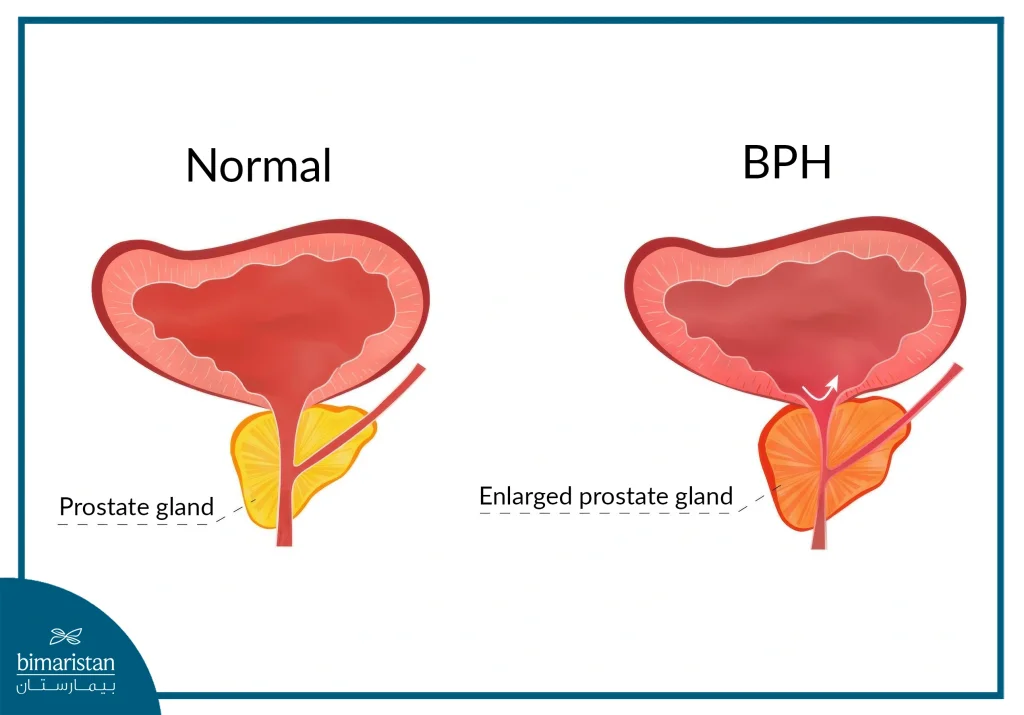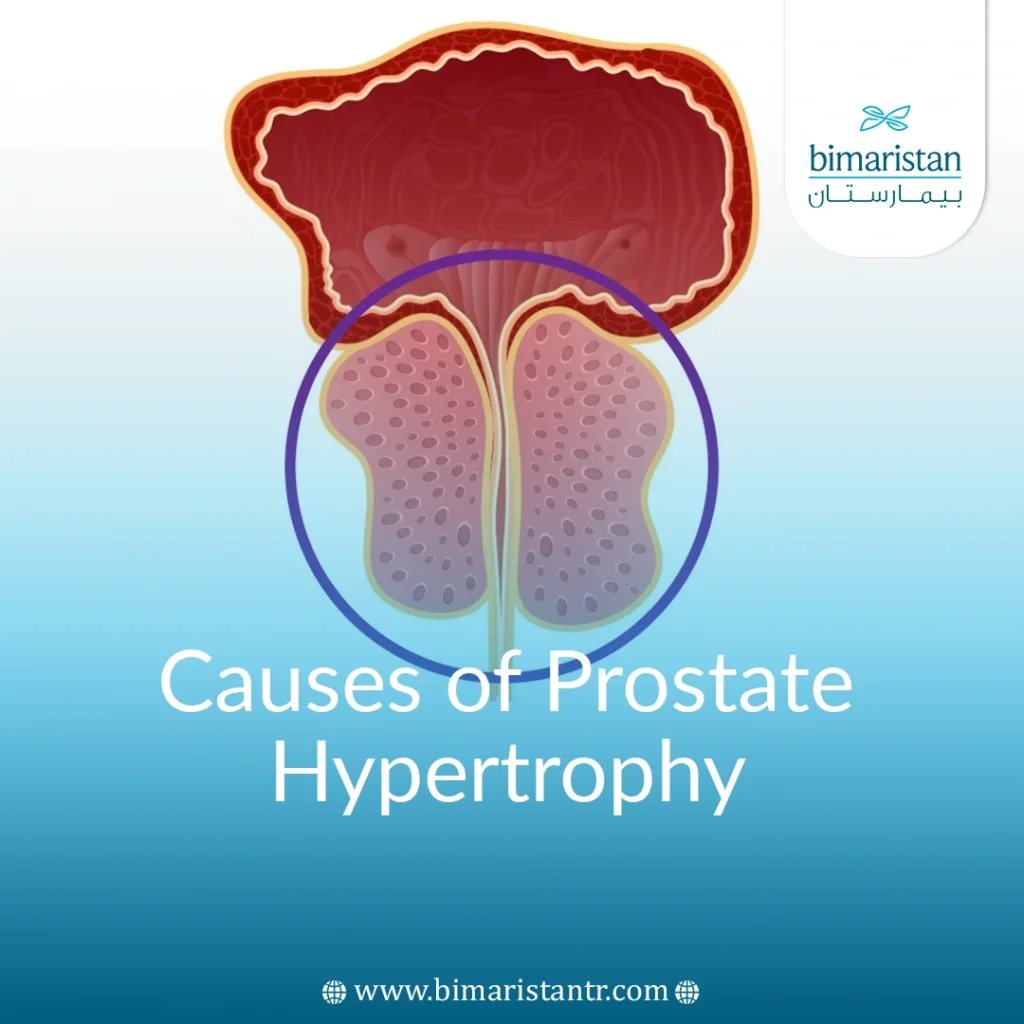Benign Prostatic Hyperplasia (BPH) is a common condition that affects men as they age, but it can also occur in younger men. So, what are the causes of prostate hypertrophy in young men?
Understanding the causes of prostate hypertrophy in young men is crucial for preventing this common condition as they age, particularly if there is a family history of prostate enlargement or other risk factors, which we will discuss later. Knowing the causes of prostate hypertrophy also aids in developing an effective treatment plan if you are diagnosed with this condition. While prostate enlargement may not present a direct life-threatening risk, it can cause bothersome symptoms that affect your quality of life, often prompting the need for treatment. So, what are the causes of prostate hypertrophy and its symptoms, and how can you prevent and treat it?
Causes of prostate hypertrophy at an early age
Some may believe that the causes of prostate hypertrophy in young men are solely due to genetic factors, making it unavoidable. However, this is not entirely accurate, as various causes of prostate hypertrophy are not influenced by genetics, and young men can take steps to avoid it, helping to protect themselves from developing benign prostatic hyperplasia (BPH) as they age.
While the prostate naturally enlarges with age, the exact cause remains undetermined. However, studies have suggested a potential link between prostate hypertrophy in young men and one or more of the following causes:
Overweight and obesity
A sedentary lifestyle is one of the accused factors in benign prostatic hyperplasia, as obesity increases the risk of developing prostate enlargement with age. Conversely, regular exercise and maintaining a healthy weight may help prevent this medical problem.
Diabetes and heart diseases
Although diabetes and heart diseases are rare in young men, they are considered significant causes of prostate hypertrophy. Studies have shown that medications used by heart patients may increase the risk of prostate enlargement, as well as diabetes, whether it is type 1 (juvenile) or type 2. You can read more about the symptoms of diabetes.
Family history of prostate hypertrophy
Having a family member, such as a father or brother, with benign prostatic hyperplasia (BPH) may increase your susceptibility to developing this condition at an early age. Research and studies have suggested that genetic factors are significant causes of prostate hypertrophy, though how genetics contribute to the condition is still not fully understood.
Hormonal changes
The relationship between elevated levels of male hormone (testosterone) and benign prostatic hyperplasia is still controversial. Some studies have suggested that men with high levels of this hormone are more prone to developing benign prostatic enlargement than their peers with low levels, as hormone replacement therapy (TRT) is a significant risk factor for benign prostatic hyperplasia.
Dietary habits and caffeine
Doctors have found that a diet rich in red meat and low in fruits and vegetables is one of the causes that increase the risk of an individual developing prostate enlargement because protein-rich foods increase the level of the male hormone (testosterone), which stimulates the growth of prostate tissue.
Additionally, caffeine found in coffee is also blamed for increasing the risk of prostate enlargement in men due to its stimulation of the active form of the male hormone dihydrotestosterone (DHT) and increasing its level in the blood.
Smoking
Opinions have varied about the effect of smoking and its relationship with benign prostatic hyperplasia. Some studies have linked the toxic tobacco substance found in cigarettes and its effect on raising the level of DHT in males, which in turn stimulates prostate growth. However, on the other hand, other studies considered smoking to be not responsible at all for this condition and cannot be considered a cause of benign prostatic hyperplasia.
Aging
The older a person gets, the higher their chances of developing prostate enlargement. The relationship between age and prostate hypertrophy is well-established, as more than half of men over the age of fifty develop this condition. To find out the reason for this, follow along with the next section.
Read more about:

Causes of prostate hypertrophy in elderly men
The prostate gland naturally grows as a person ages, with two main phases of accelerated growth: the phase of sexual maturity, during which reproductive organs mature in males, and the prostate enlarges to about double its previous size, and the second phase of growth acceleration extends from the age of 20 to 30 years.
The enlargement process continues relatively slowly in the period between 30 and 50 years old. However, when men reach the age of fifty, the prostate growth curve accelerates again. Therefore, more than half of men experience symptoms of benign prostatic hyperplasia (BPH) after the age of fifty.
Scientists believe that the causes of prostate hypertrophy in elderly men are natural changes in hormone levels secreted by the testes. With advancing age, the amount of active testosterone (DHT) in the blood decreases while estrogen levels remain normal. This hormonal change stimulates the growth and enlargement of prostate tissue.
Read about: Transurethral resection of the prostate in Turkey
Symptoms of prostate hypertrophy in younger men
The prostate is a gland about the size of a golf ball, located just below the bladder and surrounding the urethra. When it enlarges, it puts pressure on the urethra, causing some urinary symptoms, including:
- Urgency to urinate despite the bladder not being full
- Increased frequency of urination at night, disrupting sleep and causing discomfort
- Difficulty starting urination and inability to completely empty the bladder
- Weak urinary stream
- Dribbling urine after urination
Less commonly, other symptoms may occur in patients with benign prostatic hyperplasia, such as recurrent urinary tract infections, which can cause blood drops in the urine. Although all these symptoms can occur, prostate enlargement usually does not pose a real threat to the patient’s life; they are merely annoying symptoms that can be managed but are treatable in various ways.
Read about: prostatic artery embolization: Benefits, risks and post-treatment
Complications of benign prostatic hyperplasia
In some cases of untreated prostate enlargement, complications may worsen the course of the disease and pose a real threat to urinary function. Among these complications are:
- Inability to urinate naturally (some may need a urinary catheter)
- Recurrent urinary tract infections
- Formation of urinary stones due to the inability to completely empty the bladder
- Bladder damage and loss of its ability to contract and relax
- Chronic urinary retention may damage kidney function
Some men fear that benign prostate hyperplasia may develop into prostate cancer, but this information is fortunately false and not actually proven. According to studies, there is no relationship between benign prostate hyperplasia and cancer, as the risk of cancer remains equal between men with enlargement and healthy men.
Prevention of prostate hypertrophy from an early age
You may wonder if you can prevent benign prostatic hyperplasia or if it is inevitable. In reality, making some minor adjustments to your lifestyle from a young age can reduce the likelihood of developing the disease as you age. Here are some tips for preventing prostate enlargement:
- Regular exercise while maintaining a healthy weight
- Eating a healthy diet with minimal fats and red meats
- Avoiding excessive coffee consumption due to the negative effects of caffeine on prostate health
- Quitting smoking and avoiding alcohol
In conclusion, understanding the causes of prostate hypertrophy while you are young can help prevent and reduce the risk of developing this common condition as you age. Remember that an ounce of prevention is worth a pound of cure, and if you experience symptoms of prostate enlargement, there is no need to worry. There are many treatment options available, and it usually does not lead to serious complications in your life.
Read about:
Chronic prostatitis treatment in Turkey
Symptoms of prostate hypertrophy in men and treatment methods
Sources:
